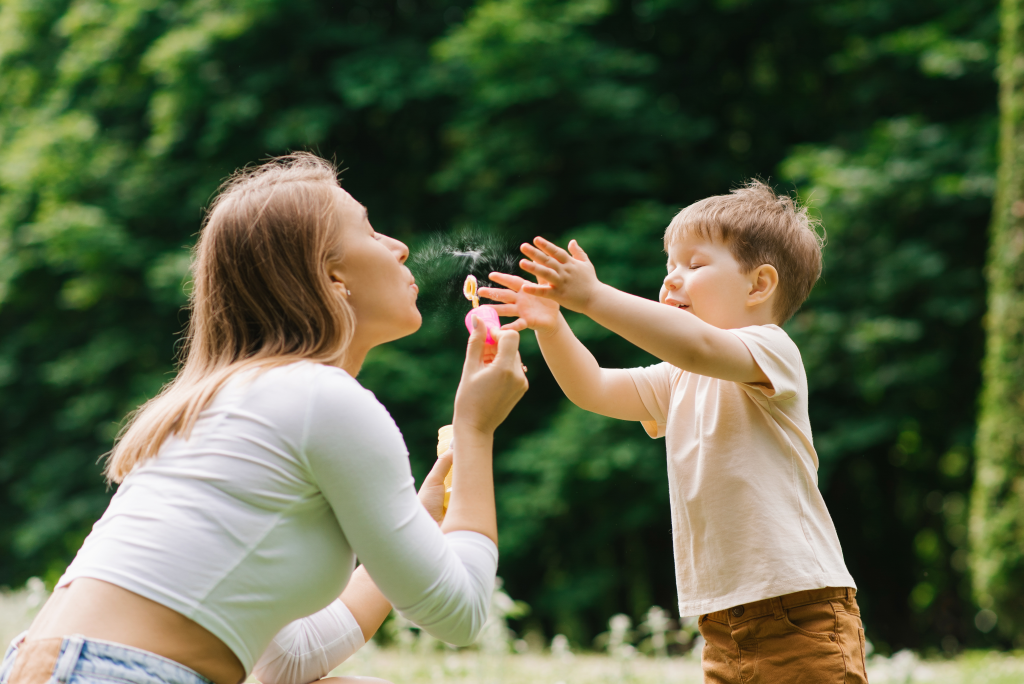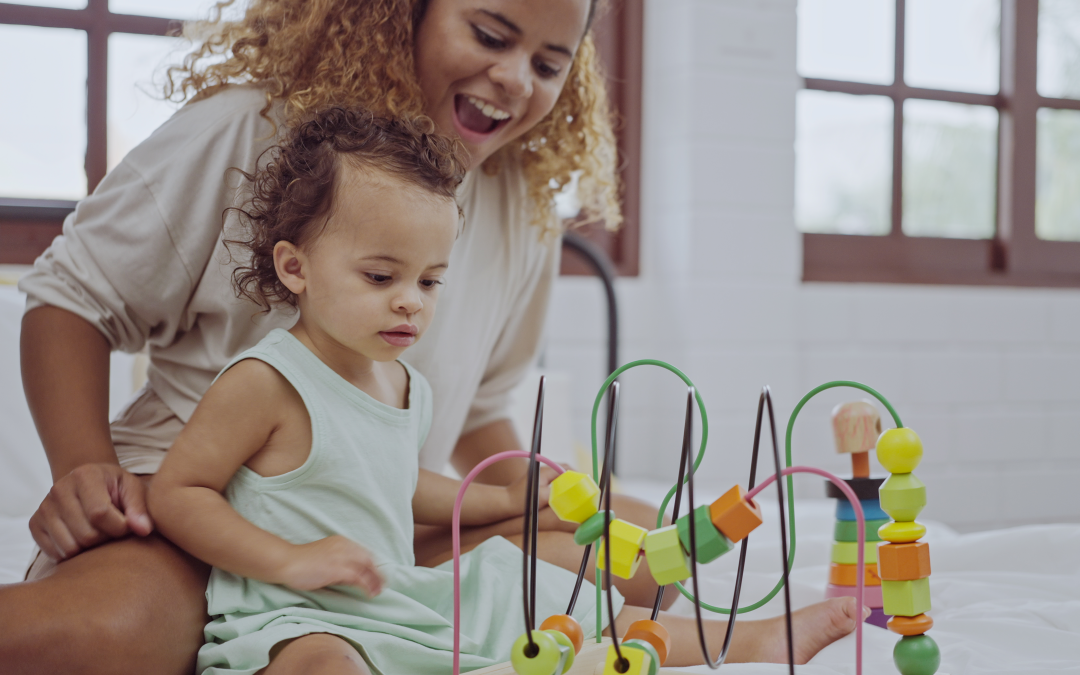As parents, we all want to be able to communicate effectively with our toddlers. It can be frustrating when they don’t understand us or can’t express themselves in a way we can comprehend. However, communication doesn’t always have to be verbal. Play can be a powerful tool for connecting with your child and enhancing communication skills.
Here are some tips for learning to communicate with your toddler through play:
Follow their lead
One of the best ways to build communication through play is to let your child take the lead. Observe what they are interested in and join in with their play. For example, if they are playing with a toy car, ask them about the colour, shape, or where they are going. This allows them to feel heard and understood and helps build their vocabulary.
Use repetition
Toddlers learn best through repetition, so don’t be afraid to repeat words or phrases during playtime. For example, if you are playing with blocks, you can say “block” each time you stack a new one. This helps to reinforce the word and makes it easier for your child to remember.
Play games with turn-taking
Playing games that involve turn-taking can help to build communication skills in toddlers. Games like “peek-a-boo” or “I Spy” encourage your child to take turns and use words to communicate. This helps to build their social skills and can improve their ability to communicate with others.
Use gestures and body language
Toddlers may not have the vocabulary to express themselves fully, but they can still communicate through gestures and body language. Encourage your child to use gestures like pointing or nodding to communicate. You can also use gestures yourself to reinforce the meaning of words.
Make it fun!
The most important thing is to make communication through play fun! Laugh, smile, and enjoy.

When your child associates communication with positive emotions, they are more likely to continue to communicate and develop their skills. Learning to communicate with your toddler through play takes time and patience, but it can be a fun and rewarding experience for you and your child. By following their lead, using repetition, playing games with turn-taking, using gestures and body language, and making it fun, you can build a strong foundation for communication that will last a lifetime.
